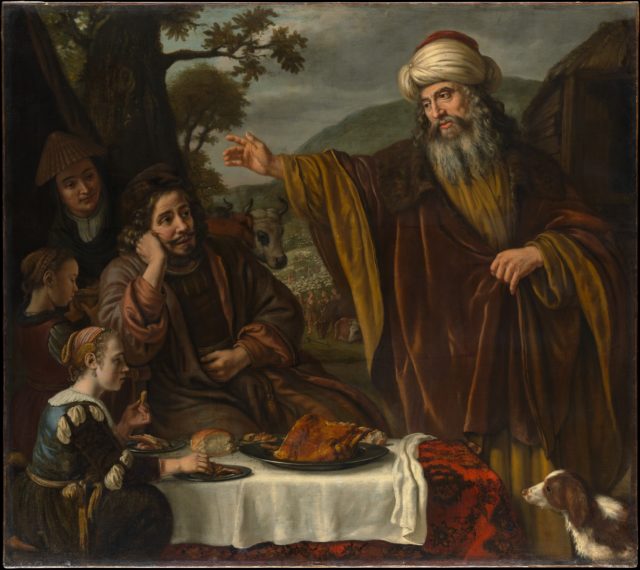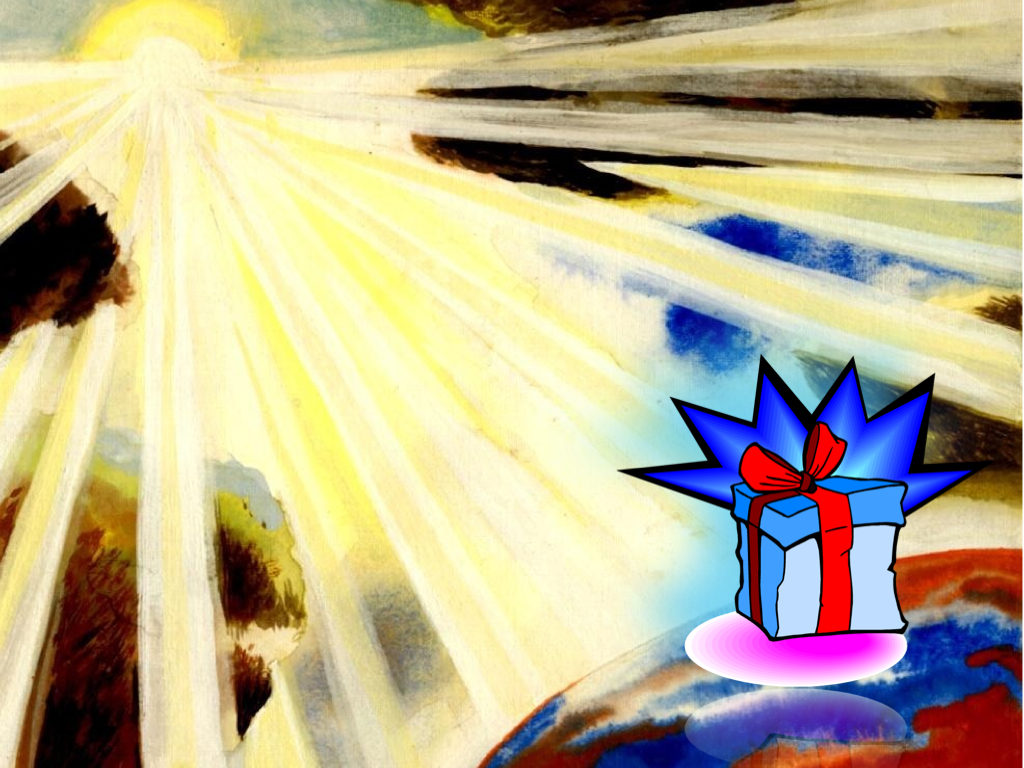Genesis 18:1, Then YHVH appeared to him.

YHVH Calls Abraham
And YHVH appeared [ra’ah the common Hebrew word meaning “to see, look, behold, show, appear, observe, have vision, present oneself, be seen”] unto Abram, and said, Unto thy seed will I give this land: and there built he an altar unto YHVH, who appeared unto him. (adapted from the KJV)
There God became visible to Abram and said … (as translated in S. R. Hirsch’s Genesis commentary)
How and in what form did YHVH appear to Abraham? This is the question the Jewish sages have been pondering for two thousand years. On the one hand, the language of Scripture is clear and seems literal enough: “YHVH appeared unto Abram … and said …” Yet let’s now note what some of the most notable Jewish sages have to say about this verse.
Rashi, the greatest Jewish Torah commentator of the modern era, has nothing to say about this verse in his commentary. Baal HaTurim, another notable Jewish commentator, in his Torah commentary, does not discuss the nature of the appearance. The Soncino Edition of the Pentateuch has no comments on verse seven. The ArtScroll Bereishis/Genesis Commentary states the following:
And [YHVH] made Himself visible to Abram: The stress is strongly on this visibility. The expression states that, not only was the Voice of God heard, but God Himself, so to speak, appeared, emerging from invisibility to visibility; revealing Himself. This is of far reaching importance because the Torah thereby specifically refutes the view of those who deny actual revelations and consider them products of human imagination and ecstasy. The means by which God spoke to human beings is an eternal mystery. It is enough to recognize that He did indeed speak and reveal Himself to them in some tangible way. (Hirsch, p. 439; emphasis added)
Samson Raphael Hirsch, the great nineteenth orthodox Jewish scholar, in his commentary states,
God made himself visible to Abraham, and said etc. The whole stress lies on this visibility … Far from wishing to give even the very slightest idea of how God spoke to Abraham and to those chosen men to whom He revealed Himself, we still have to note what is actually told us here. The expression used says that not only was the Voice of God heard … but [He was] made visible to Abraham. (Genesis, p. 231)
Here the Jewish sages agree that YHVH literally appeared and spoke to the patriarch Abraham. If he could do this here, then why could he not send a “part” or “extension” of himself” (if you will) in the Person of Yeshua the Messiah?
YHVH—Yeshua Appears to Abraham and Sarah and Promises Them a Son
Continue reading





